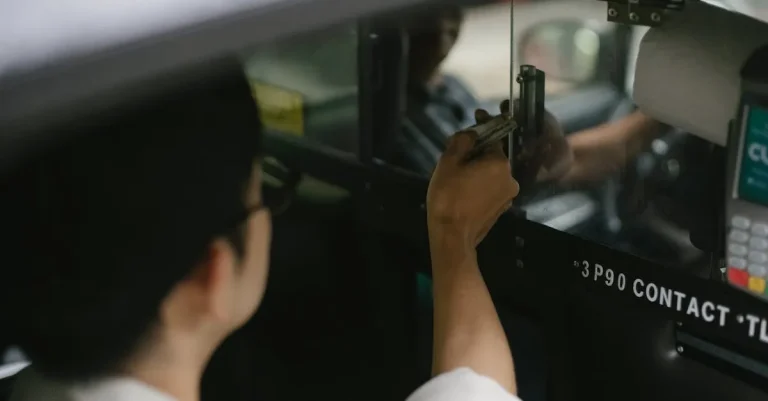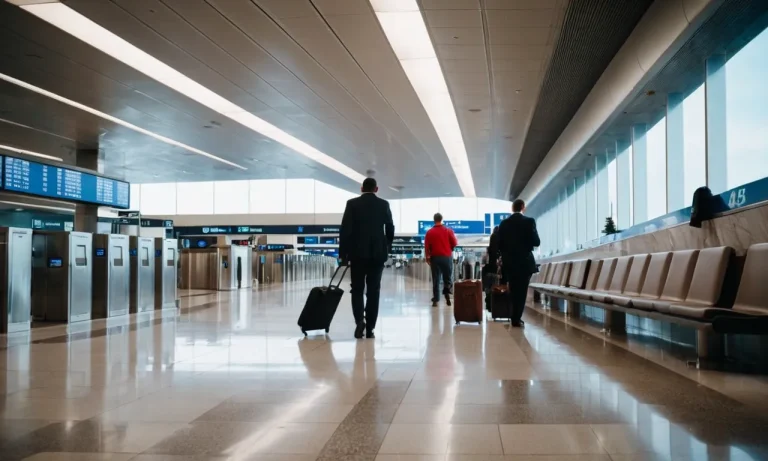Have you ever booked travel through Expedia and then seen a charge on your credit card statement from ‘Expedia’ that didn’t match the total you expected to pay?
If so, you’re not alone. Expedia charges can be confusing, with various unexpected fees and pending authorizations showing up.
If you’re short on time, here’s a quick answer to your question:
Expedia charges on your credit card statement may include the cost of your booking, taxes, and fees, add-ons like seat selection or insurance, authorization holds that differ from the final charge, and charges from Expedia partners like hotels and airlines.
It’s a good idea to closely review your reservation details to understand what you’ll be charged.
In this comprehensive guide, we’ll explain the many different types of Expedia charges you might see, provide tips on deciphering your credit card statement, and share how to dispute any erroneous charges.
Booking Costs
When you book a hotel or flight through Expedia, you may notice various charges on your credit card statement.
Understanding these charges is essential to manage your finances effectively. Expedia charges can be broken down into two main categories: base price and taxes/fees.
Base Price
The base price is the initial cost of your booking before any additional charges are added.
It includes the cost of the hotel room or flight ticket and may vary depending on factors such as location, date, and availability.
Expedia negotiates with hotels and airlines to offer competitive prices, allowing you to find great deals on your travel bookings.
Taxes and Fees
Taxes and fees are additional charges that are added to the base price. These charges are imposed by various entities, including local governments, airports, and hotel management.
They are necessary to cover expenses such as city or tourism taxes, airport facility charges, and resort fees.
It’s important to note that taxes and fees can vary significantly depending on your destination and the specific hotel or airline you choose.
Some destinations may have higher taxes, while others may have additional fees for amenities or services.
Expedia provides a breakdown of these charges before you confirm your booking, allowing you to make an informed decision.
By understanding the different components of Expedia charges, you can better manage your travel expenses and ensure that there are no surprises when you receive your credit card statement.
It’s always a good idea to review your charges carefully and keep track of your expenses to maintain financial control while enjoying the convenience of online travel bookings.
Add-Ons and Upgrades
When booking a flight or hotel through Expedia, you may encounter additional charges on your credit card statement.
These charges are often related to add-ons and upgrades that you may have selected during the booking process.
Understanding these charges can help you better manage your expenses and ensure a smooth travel experience.
Seat Selection
One common add-on charge you may see on your credit card statement is for seat selection.
Airlines often offer the option to choose your seat in advance, allowing you to select a seat with extra legroom, a window seat, or one closer to the front of the plane.
While this can enhance your travel experience, it usually comes at an additional cost. The price may vary depending on the airline and the specific seat you choose.
Baggage Fees
Another charge you may come across is for baggage fees. Most airlines have specific baggage policies and charge fees for checked bags or bags that exceed certain weight or size limits.
When booking through Expedia, you may have the option to include checked bags or additional baggage allowances as part of your reservation.
These fees are typically paid upfront and will be reflected on your credit card statement.
Insurance
Expedia also offers travel insurance options that can provide coverage for trip cancellations, medical emergencies, or lost baggage.
If you choose to purchase travel insurance through Expedia, you will see a separate charge on your credit card statement.
It’s important to carefully review the insurance coverage and terms before making a decision, as it may vary depending on the provider and the specific policy you choose.
Pro Tip: If you’re unsure about whether to select add-ons or upgrades, consider weighing the benefits and costs. For example, if you have a long flight, paying for extra legroom might be worth it for added comfort.
On the other hand, if you’re traveling light, you may not need to pay for checked bags. Take some time to evaluate your needs and preferences to make an informed decision.
Authorization Holds
When you book a hotel or flight through Expedia, you may notice a charge on your credit card statement labeled as an “authorization hold.”
This is a common practice in the travel industry and is used to ensure that you have sufficient funds to cover the cost of your reservation.
What is an authorization hold?
An authorization hold is a temporary hold placed on your credit card to verify that it is valid and has enough available credit to cover the transaction.
The hold is typically for the estimated total cost of your reservation, including taxes and fees.
How long does an authorization hold last?
The length of time an authorization hold remains on your credit card can vary. In most cases, the hold is released once the transaction is completed or after a certain period of time, usually a few days.
However, it’s important to note that the funds may still appear as “pending” on your credit card statement until the hold is officially released.
Why does Expedia use authorization holds?
Expedia, like many other travel booking websites, uses authorization holds to protect against fraud and to ensure that customers have sufficient funds to cover their reservations.
By placing a hold on the funds, Expedia can be confident that the payment will go through when the booking is confirmed.
What should I do if I see an unauthorized charge?
If you notice a charge on your credit card statement from Expedia that you did not authorize, it’s important to take immediate action.
Contact your credit card company or bank to report the unauthorized charge and request a refund.
Additionally, you should contact Expedia’s customer support to inform them of the situation.
Tips for managing authorization holds:
- Keep track of your reservations and the corresponding charges.
- Be aware that authorization holds may temporarily reduce your available credit.
- If you’re concerned about the hold impacting your available credit, consider using a credit card with a higher limit.
- Check your credit card statement regularly to ensure that all charges are accurate.
By being aware of how these holds work, you can avoid confusion and resolve any issues that may arise.

Charges from Expedia Travel Partners
When reviewing your credit card statement, you may come across charges from Expedia that you don’t immediately recognize.
These charges can often be attributed to the various travel partners that Expedia works with to provide you with a seamless booking experience.
Understanding these charges will help you keep track of your expenses and ensure that everything is in order.
Hotel Incidentals
One common type of charge you may see on your credit card statement is related to hotel incidentals.
These charges are typically separate from the room rate and cover additional services or amenities you may have used during your stay.
Examples of hotel incidentals can include room service, minibar charges, and parking fees.
It’s important to note that these charges may not always appear as “Expedia” on your statement, but rather under the specific hotel’s name or another affiliated entity.
When booking a hotel through Expedia, it’s a good idea to review the terms and conditions to understand what charges may be considered incidentals.
Additionally, it’s always a good practice to keep track of your expenses during your stay and verify them with the hotel upon checkout to avoid any discrepancies.
Rental Car Insurance
Another type of charge you may encounter on your credit card statement is related to rental car insurance. When renting a car through Expedia, you have the option to add insurance coverage to your reservation.
This coverage can provide additional protection in case of accidents, damage, or theft during your rental period.
If you opted for rental car insurance through Expedia, you may see a charge on your credit card statement for this coverage.
It’s important to review the terms and conditions of the insurance policy to understand what is covered and any deductible amounts that may apply.
Keep in mind that rental car insurance charges may be listed under the name of the car rental company rather than Expedia itself.
It’s also worth noting that rental car insurance charges can vary depending on the duration of your rental, the type of vehicle, and any additional coverage options you may have selected.
Taking the time to understand the insurance terms and comparing different options can help you make informed decisions and avoid unexpected charges.
For more information on charges from Expedia travel partners, you can visit Expedia’s official website and review their frequently asked questions section or reach out to their customer support for further assistance.
How to Review Your Expedia Charges
When you see charges from Expedia on your credit card statement, it’s important to review them carefully to ensure accuracy and address any concerns you may have.
Here are some steps to help you understand and review your Expedia charges.
Check Your Reservation Details
The first step in reviewing your Expedia charges is to check your reservation details. This includes verifying the dates, locations, and other important information related to your booking.
By comparing the charges on your credit card statement with the reservation details, you can confirm that the charges are for the correct booking.
If you notice any discrepancies or unfamiliar charges, don’t panic! Sometimes, charges may appear differently on your credit card statement due to currency conversions or other factors.
It’s always a good idea to double-check the details and keep track of your bookings.
Look at Pending Charges
In some cases, you may see pending charges from Expedia on your credit card statement.
Pending charges are temporary holds placed on your account to ensure that the funds are available when the transaction is finalized. These charges usually disappear within a few business days.
If you have recently made a reservation but see a pending charge that does not match your booking amount, it’s recommended to wait for a few days before taking any action.
It’s possible that the charge will be adjusted or removed automatically as the booking is processed.
Contact Expedia Customer Service
If you have reviewed your reservation details and pending charges but still have concerns or questions about the charges on your credit card statement, it’s best to reach out to Expedia customer service for assistance.
They have dedicated teams that can help investigate and resolve any billing issues you may have.
When contacting Expedia customer service, be prepared to provide them with your booking details, credit card statement information, and any supporting documentation you may have.
This will help them investigate the charges more efficiently and provide you with a resolution.
Note: It’s important to keep in mind that while Expedia charges are generally straightforward, mistakes can happen.
By staying vigilant and reviewing your charges regularly, you can ensure that you are only paying for what you have booked.
Disputing Erroneous Expedia Charges
It can be frustrating to find unexpected charges on your credit card statement, especially when they are from a reputable travel booking platform like Expedia.
However, it is essential to address these issues promptly to avoid any financial inconvenience.
If you notice any erroneous charges on your Expedia booking, you have the right to dispute them and seek a resolution.
Step 1: Review your Expedia itinerary
The first step in disputing erroneous charges on your credit card statement is to carefully review your Expedia itinerary. Cross-check the charges listed on your statement with the details of your booking.
Ensure that the amount charged matches the agreed-upon price and that there are no additional charges that you were not aware of or did not authorize.
Step 2: Contact Expedia customer support
If you identify any erroneous charges, the next course of action is to contact Expedia’s customer support.
Explain the situation and provide them with all the relevant information, including your booking details and the specific charges you are disputing.
Expedia’s customer support team is usually responsive and dedicated to resolving customer issues.
Step 3: Gather evidence
While communicating with Expedia’s customer support, it is essential to gather any evidence that supports your claim of erroneous charges.
This can include screenshots of your booking confirmation, emails or chat transcripts with Expedia representatives, or any other documentation that proves the discrepancy between the charges on your statement and the agreed-upon price.
Step 4: Escalate the dispute if necessary
If your initial contact with Expedia’s customer support does not result in a satisfactory resolution, don’t be discouraged.
You can escalate the dispute by reaching out to your credit card company or bank. Provide them with the evidence you gathered and explain the situation.
They will guide you through the process of disputing the charges and may initiate an investigation to resolve the matter.
Step 5: Monitor your credit card statement
After disputing erroneous charges, it is crucial to keep a close eye on your credit card statement. Check for any updates or adjustments made by Expedia or your credit card company.
In most cases, the dispute process takes some time, and it’s essential to ensure that the issue is resolved and the erroneous charges are removed from your statement.
Remember, it’s always a good practice to review your credit card statements regularly to catch any potential erroneous charges promptly. Additionally, consider using secure payment methods and keeping track of your online transactions to minimize the risk of unauthorized charges.
Conclusion
We hope this guide has helped explain the various Expedia charges you may see on your credit card statement.
While it can be confusing to decipher reservation costs across multiple providers, being an informed traveler is key.
By reviewing your booking details closely, monitoring pending charges, and contacting Expedia with any issues, you can feel confident understanding the charges from your Expedia travel reservations.






